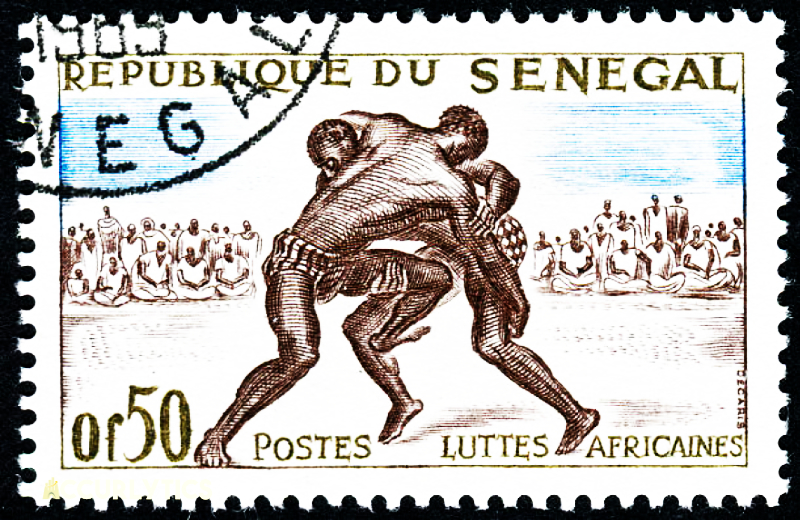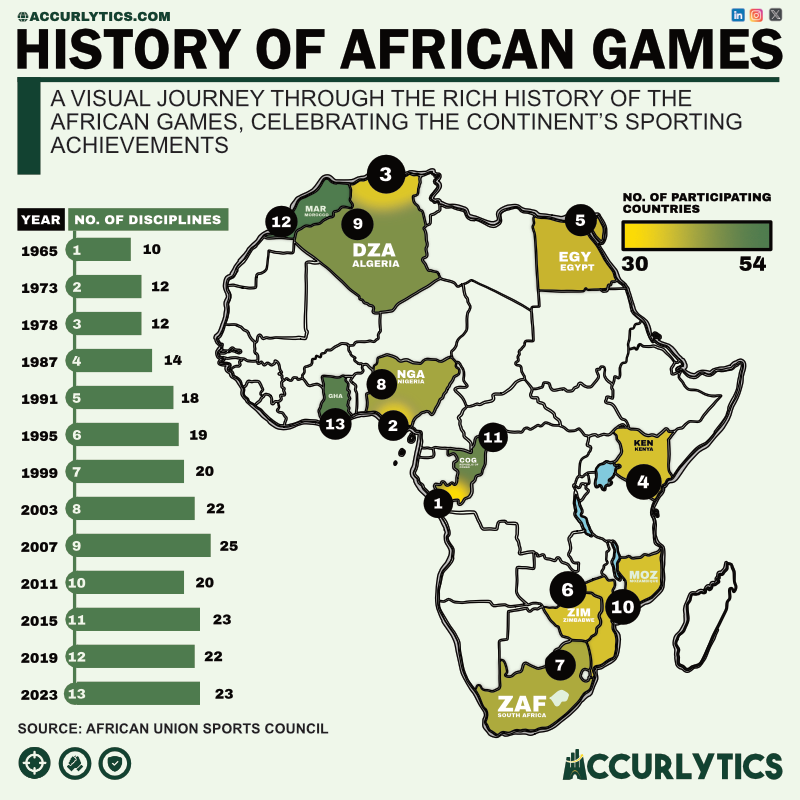The Rich History of the African Games
The African Games, formerly recognized as the All-African Games, represent a continental multi-disciplinary pan-African sports event conducted every four years under the auspices of the African Union, acting on behalf of its Member States. This event boasts a rich historical lineage, tracing its origins to earlier gatherings such as the Community Games and subsequently the Friendship Games, which debuted in 1963 in Dakar, Senegal. Notably, the inaugural edition saw the participation of twenty-four (24) independent African States in track-and-field events, inclusive of women's participation.
Increase in Participation
One of the most notable trends observed in the All-African Games is the substantial increase in the number of participating member states. From its inception, with 30 member states actively involved, to its current stature boasting the participation of 52 member states, the event has witnessed a remarkable expansion in geographical representation. This surge in participation signifies a growing commitment among African nations to engage on a continental platform, fostering camaraderie, cultural exchange, and healthy competition.
Diversification of Disciplines
Another significant aspect of the All-African Games' evolution is the diversification of sporting disciplines. Initially featuring 10 disciplines, the event has now broadened its scope to encompass a diverse array of 23 disciplines, ranging from athletics and swimming to basketball and gymnastics. This expansion not only caters to a wider range of sporting interests but also reflects Africa's determination to excel across various domains of athletic prowess. Moreover, the inclusion of new disciplines aligns with global trends in sports diversification, promoting inclusivity and providing athletes with greater opportunities to showcase their talents.
Impact and Implications
The surge in participation and the expansion of disciplines within the All-African Games carry significant implications for the continent's sporting landscape. Firstly, it fosters a sense of unity and solidarity among African nations, transcending political and cultural boundaries through the shared pursuit of sporting excellence. Additionally, the event serves as a platform for talent identification and development, offering aspiring athletes from diverse backgrounds the chance to shine on a continental stage. Furthermore, the increased visibility of the All-African Games enhances Africa's standing in the global sporting arena, elevating its reputation as a hub for athletic prowess and competitive spirit.


